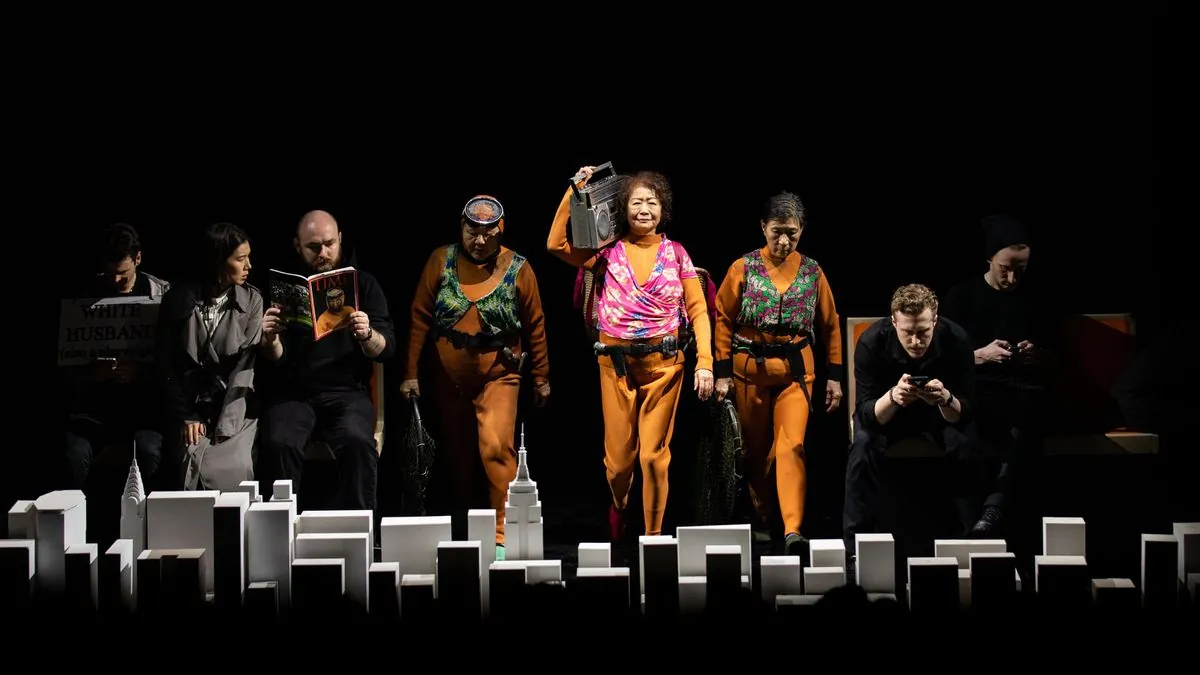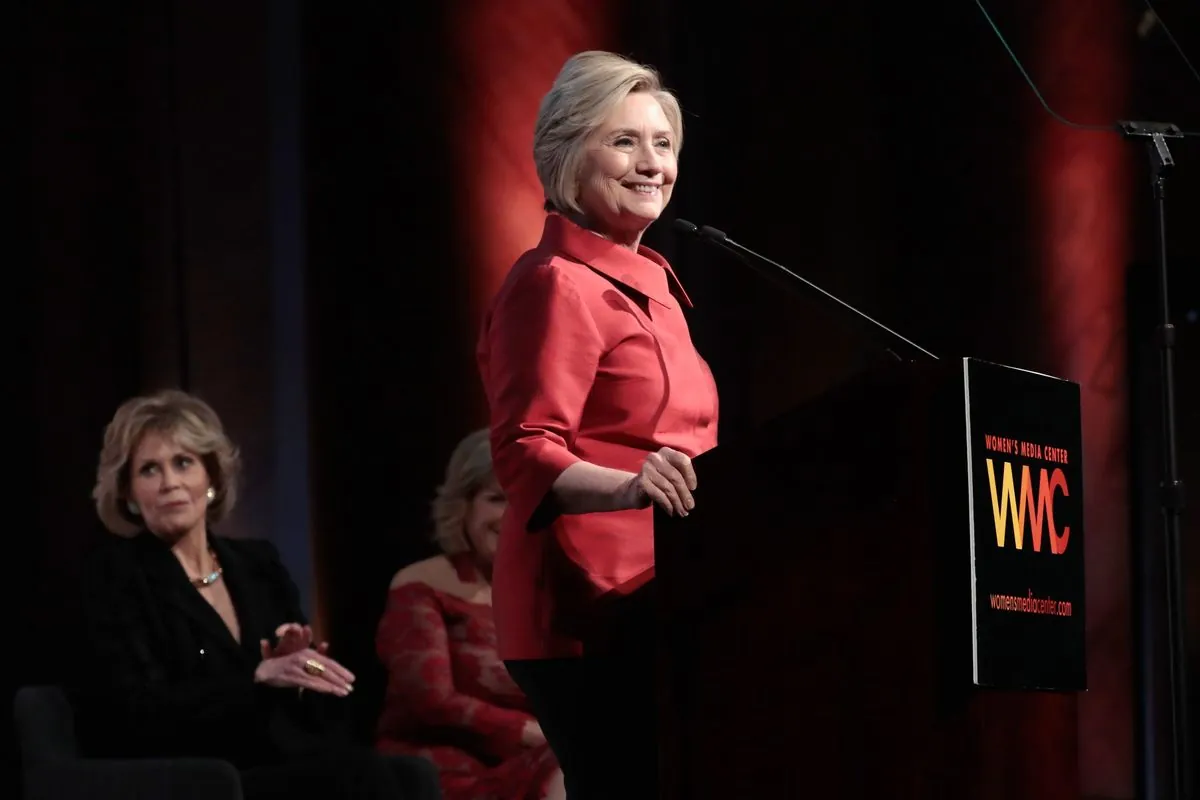"Soft Power" Play Challenges American Democracy with Satirical Twist
David Henry Hwang's "Soft Power" at Signature Theatre offers a provocative critique of U.S. politics through a reversed cultural lens. The play blends satire, music, and cultural commentary in a unique theatrical experience.

David Henry Hwang's "Soft Power," currently running at Signature Theatre until September 15, 2024, presents a bold and satirical examination of American democracy through an inverted cultural perspective. This Pulitzer Prize finalist from 2020 challenges audiences with its innovative approach to political commentary and cultural critique.
The play ingeniously employs the concept of soft power, a term coined by political scientist Joseph Nye in the 1980s to describe a nation's ability to influence others through cultural and economic means rather than military force. Hwang's work extends this idea to the theatrical realm, leveraging the immediacy and emotional impact of live performance to engage viewers in a complex dialogue about politics and culture.
"Soft Power" begins as a seemingly straightforward narrative about a fictionalized version of Hwang, known as DHH, commissioned to write a musical that showcases Chinese wisdom to Americans. However, the plot takes a surreal turn, inspired by a real-life incident where Hwang was stabbed in 2015, losing a significant amount of blood. This event catalyzes a dreamlike sequence that forms the core of the play.
The musical within the play draws inspiration from Rodgers and Hammerstein's 1951 classic "The King and I," but with a crucial twist. Instead of a Western character educating Eastern counterparts, a Chinese producer named Xue Xing becomes the cultural instructor for Americans, including representations of Hillary Clinton and officials from the Donald Trump era. This reversal cleverly subverts traditional Orientalist narratives, challenging audience perceptions of cultural superiority.
Director Ethan Heard brings a dynamic flair to the production, emphasizing its satirical elements while maintaining a sharp critique of the American democratic process. The all-Asian cast performs in whiteface with blonde wigs, a bold choice that inverts typical racial power dynamics in American theater and echoes historical practices of yellowface.
One of the play's standout elements is its portrayal of Hillary Clinton, brought to life with energy by Grace Yoo. Set during the 2016 campaign, this version of Clinton is reimagined as a multifaceted performer, combining political gravitas with unexpected dance moves. The character's transformation from a pantsuit-clad politician to a Wonder Woman-costumed dynamo serves as a potent metaphor for the performative nature of modern politics.

"We've got problems"
The current production at Signature Theatre has been streamlined from its off-Broadway run at the Public Theater in 2019, removing certain characters and scenes to create a more focused narrative. These changes have resulted in a tighter, more impactful show that maintains its relevance with timely references to recent political events, including allusions to the January 6, 2021 attack on the U.S. Capitol.
While "Soft Power" excels in its satirical approach and performances, it also raises questions about its handling of cultural stereotypes. The play's reliance on an East-West dichotomy, while serving its central premise, risks reinforcing oversimplified views of complex cultural identities. Additionally, its treatment of serious political issues through musical comedy, while entertaining, may oversimplify the complexities of voter suppression, foreign election interference, and threats to election officials that have become increasingly prominent in recent years.
Despite these potential shortcomings, "Soft Power" remains a thought-provoking and engaging piece of theater. It challenges audiences to reconsider their assumptions about American exceptionalism, democracy, and cultural influence. The play's willingness to tackle complex issues through humor and music makes it a unique and valuable contribution to contemporary political discourse.
In an era where the principles of American democracy are under scrutiny, "Soft Power" offers a timely and provocative exploration of political systems and cultural perceptions. It invites viewers not just to watch passively but to actively engage with its ideas, encouraging debate and reflection long after the curtain falls.


































